By: Cristina carreon
TUPELO – Two days ago, CREATE President Mike Clayborne received a call from The Salvation Army that there was an excess of 400 pounds of crab meat that needed to be distributed quickly.
Bargain Hunt recently received an extra shipment of food, but like the Salvation Army, didn’t know which organization to send it to.
Tupelo-Lee Hunger Coalition convened Tuesday evening to discuss forming a collaborative network of local nonprofits and food aid agencies in Lee County to assist in funneling resources to where they are most needed.
A small group of members from the community, such as small business owners, leaders from the area’s larger industries, representatives from local schools, local government officials and several volunteers attended the meeting.
United Way of Northeast Mississippi President Melinda Tidwell said the coalitions has determined three main areas of need in Lee County: food delivery, food pantries and school programs.
Tidwell said the purpose of the organization is to form a network and observe how local food aid agencies operate.
“The hunger coalition is not trying to tell anybody how to operate,” she said.
The coalition has come closer to making decisions about how to integrate local aid agencies in Lee County to be more efficient, reduce waste and maximize resources, but funding remains an issue for future steps forward.
Clayborne said food pantries will serve different groups, schools, the elderly and the homeless, and coordination is needed to prevent food waste.
At the meeting, there was a consensus about the need to hire a part-time coordinator to manage the network of organizations, schools and food pantries.
Another goal is to raise funds for local food pantries versus focusing on food donations from local residents.
Food pantries can buy more food for the dollar, at $0.18 cents per pound at Mid-South Food Bank, Tidwell said.
Mid-South Food Bank Communications Director Marcia Wells said for the fiscal year from July 2016 to June 2017, the Food Bank has donated 1,082,437 total pounds of food to 10 Lee County food pantries, shelters and youth organizations.
”Nettleton F.A.I.T.H. Food Pantry probably does the largest distribution, but they also serve Monroe County,” Wells said.
Clayborne said the current system that local food pantries operate under is spotty, non-comprehensive and it’s not just food pantries that are facing problems.
The coalition found that in Lee County schools’ 64 percent of children are on the free and reduced lunch program in school. The organization has found students face food insecurity, particularly during holidays and summer when reduced school lunches are not available.
Serving rural areas
Serving rural areas is another difficult challenge the coalition seeks to tackle in the coming months.
Three quarters of counties with the highest rates of food insecurity are comprised of people living in rural areas, and 86 percent of counties with high rates of child food insecurity live in rural areas.
“There’s not a lot of coordination of the criteria for picking which children are helped, or making sure that if a child moves from one school system to another, the counselor at the new school knows…because sometimes it takes awhile for counselors at a new school to realize a child needs help,” Tidwell said.
Looking at the new statistics
The coalition, led by CREATE Foundation’s recently established Tupelo/Lee County Community Foundation and United Way of Northeast Mississippi, has made progress on its research into food insecurity in Lee County since its first meeting in in September.
Mississippi is the most food insecure state in the U.S., according to recent research conducted by the Feeding America network for the coalition.
The research has shown that there are 15,060 food insecure people in Lee County. That is a rate of 17.7 percent of people who do not have reliable access to food.
The research further shows an estimated $8,142,000 food budget shortfall for Lee County, with 59 percent of people living beneath SNAP’s 130 percent poverty threshold.
Clayborne said the coalition will begin discussions next week with the CREATE grant committee about how the new coordinator position will be funded, and hopes to have the position filled by the first of the year.



